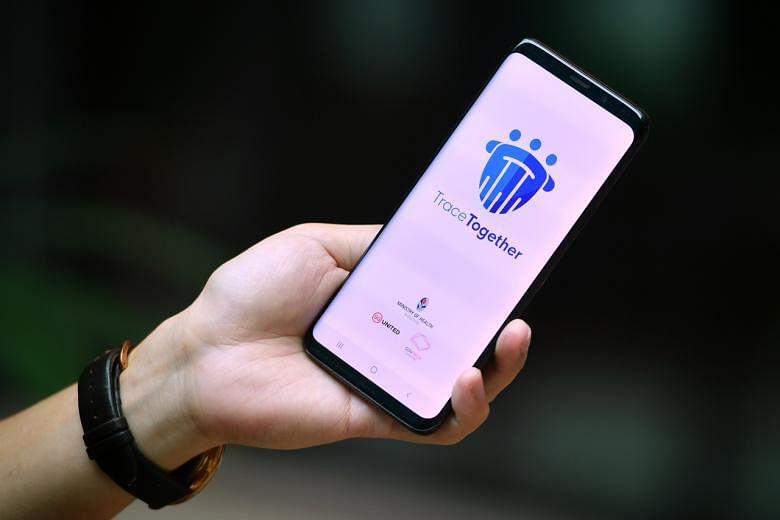SINGAPORE - Locally-based electronics firm PCI has won a bid to supply the first 300,000 TraceTogether Token dongles that will allow more people to be included in Singapore's contact tracing efforts and help curb the spread of Covid-19.
The $6 million tender, which works out to $20 per token, was awarded by the Government Technology Agency (GovTech) on May 14, according to a notice on government procurement portal GeBiz.
Responding to queries from The Straits Times, a spokesman for the Smart Nation and Digital Government Group (SNDGG) said on Friday (June 12) that GovTech has contracted PCI to manufacture an initial batch of TraceTogether Tokens.
He added that the SNDGG will be calling for a tender for the design, manufacturing and delivery of further batches of these tokens.
The token's introduction comes at a time when contact tracing will be more crucial in Singapore's efforts to battle Covid-19, as more activities resume with the relaxation of the circuit breaker measures.
In addition, scientists have discovered that the disease spreads more easily at the start of the illness, making quick and effective contact tracing important.
TraceTogether Token will work in the same way as Singapore's national contact tracing app TraceTogether, which exchanges and logs Bluetooth signals between nearby devices to keep track of who users have been in close contact with.
Minister-in-charge of the Smart Nation Initiative Vivian Balakrishnan has said that the TraceTogether Token may be given to everyone in Singapore, and that those who do not have mobile phones will be prioritised.
The device will be rolled out from the second half of this month.
While it is not yet known what the device will look like, Dr Balakrishnan has said that it will be a small device that will be able to fit into one's bag or pocket.
The development of TraceTogether Token comes after concerns that the TraceTogether app does not work well on Apple devices, and that it has been unpopular.
About 1.8 million users have downloaded the TraceTogether app since it was launched in March, which works out to about 25 per cent of Singapore's population.
This falls short of the optimum number of users that is needed for TraceTogether to work effectively,which is about three-quarters of the population.
Digital tools like TraceTogether and the Government's visitor check-in system SafeEntry have helped to make contact tracing here a faster process.
Tracing the close contacts of an infected person used to take two to three days, but the use of these digital tools means it now takes less than a day.
Some members of the public have expressed concerns over privacy , but Dr Balakrishnan has repeatedly said the device will not track people's whereabouts and is not an electronic tag.
Data collected will stay encrypted in the device until the user is confirmed to be a Covid-19 patient, after which it will be handed over to the authorities to send the data to the Ministry of Health (MOH), which oversees the contact tracing process.
Only a small number of authorised personnel will have access to the data for contact tracing purposes, and all public sector data protection rules will apply to the data held by MOH, including abiding by the recommendations of the Public Sector Data Security Review Committee.
The recommendations include applying digital watermarking to files to identify the source of any leaked files, and replacing data that may identify individuals with random values in a process known as tokenisation.












